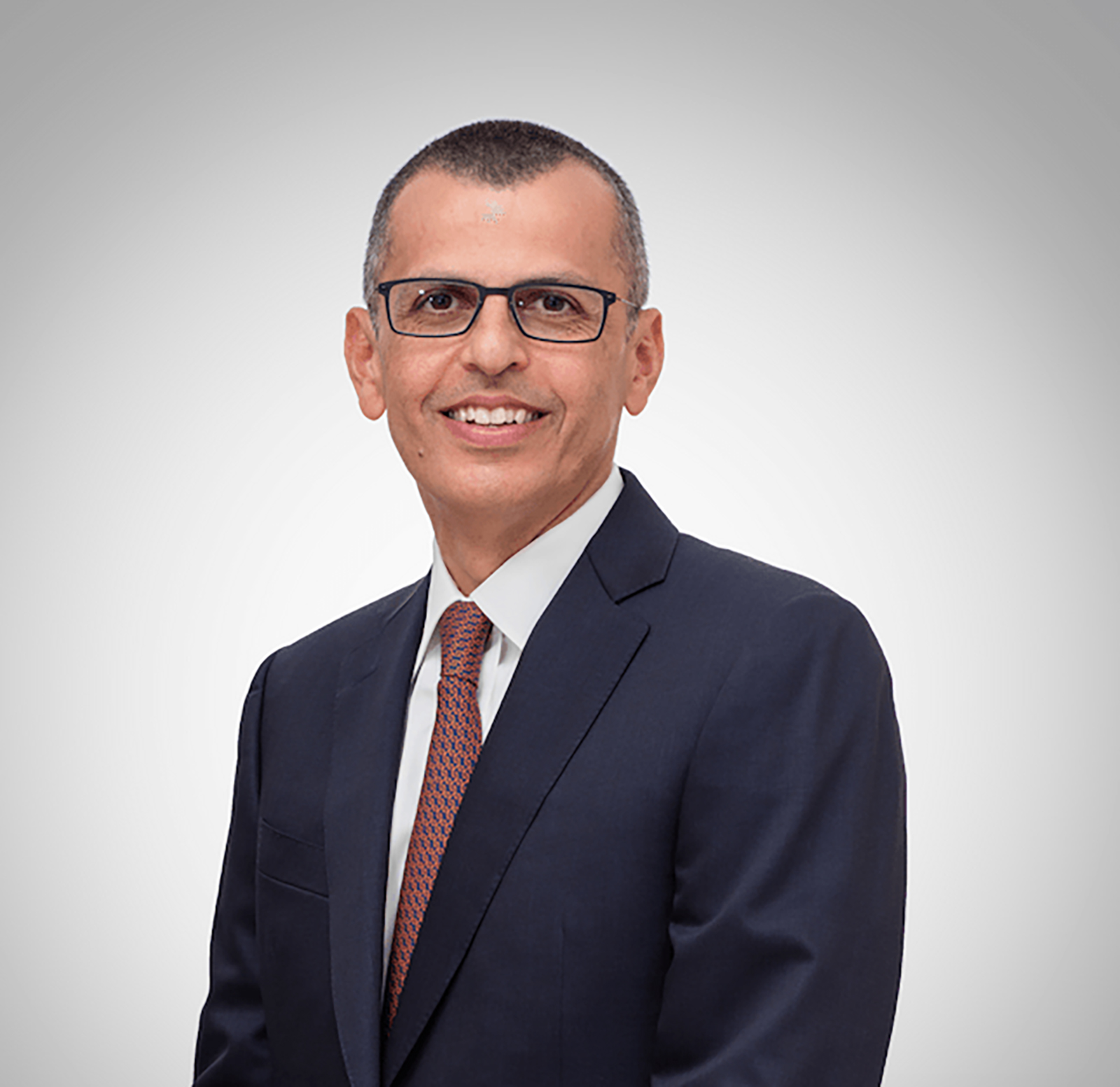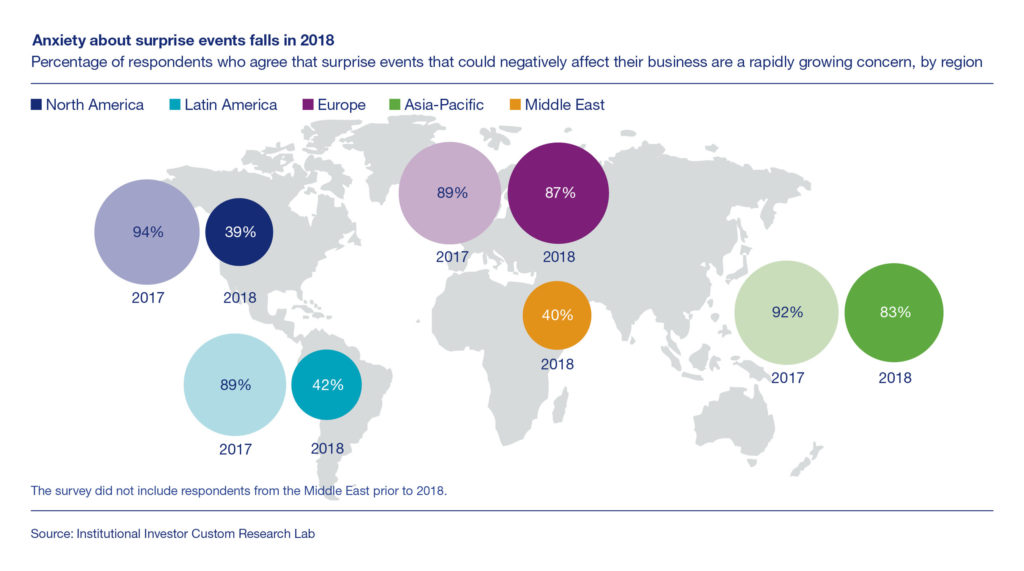
Senior finance executives across the Middle East remain optimistic about the economy, the outlook for their companies and their investments for the future, despite economic uncertainty, according to the 2019 Global Business & Spending Outlook, a survey released on June 18, 2019 by American Express Middle East and Institutional Investor Thought Leadership Studio.
The cross-industry findings in the joint American Express and Institutional Investor study are based on a global survey of 901 CFOs and other senior finance executives of firms with annual revenues of $500 million or more. More than 180 of these respondents were from across the Middle East region, including the United Arab Emirates, Saudi Arabia, Egypt and Bahrain. Now in its 12th year, the survey was conducted in late November and December 2018.
Senior executives say they are less likely to foresee economic growth in the region, which was 72% in 2019 vs 92% in 2018, partly due to lower oil prices. The growth outlook for the Middle East is in line with expectations worldwide. About 71% of the total response base anticipates a substantial or modest expansion in their home countries. Additionally, growth expectations within the region range from 67% of respondents from Bahrain expecting a significant or modest increase, to a high of 77% in Egypt.
Only 10% of senior finance executives from the Middle East foresee a modest or substantial contraction in 2019. Of the 72% who do expect to see growth in 2019, 45% anticipate moderate expansion while 27% anticipate a significant economic expansion. The majority of executives saw their companies’ global revenue rise in 2018 and the Middle East showed especially strong firm-level performance compared with Europe and Asia.
“Despite operating in unsettled times, senior finance executives across the region are concentrating on their day-to-day business with an eye on the future,” says Mazin Khoury, CEO of American Express Middle East. “While they balance spending to drive topline growth with profitability, they’re pressing ahead with expansion plans. It includes pursuing foreign trade opportunities, hiring and investing in next-generation technology.”

Foreign trade drives Middle East growth
This year’s survey also highlights that despite uncertainties around global trade issues, a majority (64%) of senior finance executives in the Middle East expected socioeconomic changes. Respondents say the international trade policy will strengthen the growth prospects of their companies. Only 5% think such issues will weaken growth prospects. This view aligns with respondents globally, where 66% believe economic changes and global trade policy will strengthen their companies’ growth prospects.
About 75% of the companies are likely to expand foreign operations, and 70% to use online media for marketing programmes to pursue international growth opportunities. These company-controlled strategies are preferred consistently over local partnerships. Alliances in foreign markets (58%) and produce/service localisation (48%), a sign that a more nimble approach to international trade is taking hold in the Middle East.
Next-Gen technology and innovation dominating factors
The digital transformation is a central theme for the majority of organisations across the region. This year’s study also revealed a growing awareness for the dramatic impact of next-generation technology on competitive dynamics within industries (31%, up from 23% last year). Expectations for significant disruption on company operations and performance (16%, compared to 18% last year) or countries have waned (14%, down from 21% last year). Among those industries surveyed, the media entertainment/ travel (43%), wholesale/retail (41%) and construction (38%) industries are most likely to anticipate significant disruption to their industry’s competitive dynamics.
Queried on the most significant technology challenge to their industry across the region, senior finance executives in this year’s study cite the use of artificial intelligence (59%). Other factors include fintech applications for payments, risk management or investment management (48%), and the Internet of Things (IoT), which includes embedded sensors and ubiquitous, internet connected devices (43%).
Against this backdrop, in keeping with their focus on the next generation, many Middle Eastern companies are investing in these emerging technologies. The most popular being artificial intelligence (AI) where 66% of respondents indicated this was a significant area of focus (up from 40% in 2018). Other areas of discussion included the Internet of Things (57% in 2019 vs 24% in 2018), and fintech (44% in 2019 versus 27% in 2018).
The continued emergence of ‘Generation Z’
Another key theme from this year’s survey was the continued rise of ‘Generation Z’, as both a customer and employee. Young people under the age of 24 now make up between 50% and 65% of the Middle East population. Senior finance executives across the region believe their companies are ready for this generation (‘Generation Z’) and the technological and economic changes they bring with them. Some 81% of those asked agreed with the statement, “My company has a long-term plan that considers technological, demographic and economic changes over the next 5-10 years” and 78% agreed that “My company has explicit strategies to appeal to ‘Generation Z’ consumers born between 1995 and 2005.”
The battle for talent extends beyond compensation
Companies across the region will continue to be competing for talent in a highly competitive marketplace in the coming year. But senior finance executives are looking beyond compensation to attract and retain the best employees. In the Middle East, 61% of senior executives expect to increase their companies’ worldwide number of employees between 8%-15%. On average, headcount will grow by 8.6% for companies across the region, somewhat lower than the global average of 9.2%.
However, this increase is not going to be accompanied by aggressive increases in compensation. Instead, companies will focus on improving career development opportunities and working environments.
Just 31% of respondents intend to raise wages or salaries to attract and retain employees in 2019. Instead, companies will expand career development opportunities (56%), improve working environments through reconfigured office spaces and increased amenities (56%), and allow flexible working arrangements (45%).
Notifications
You must be logged in to post a comment.